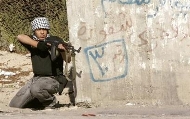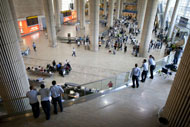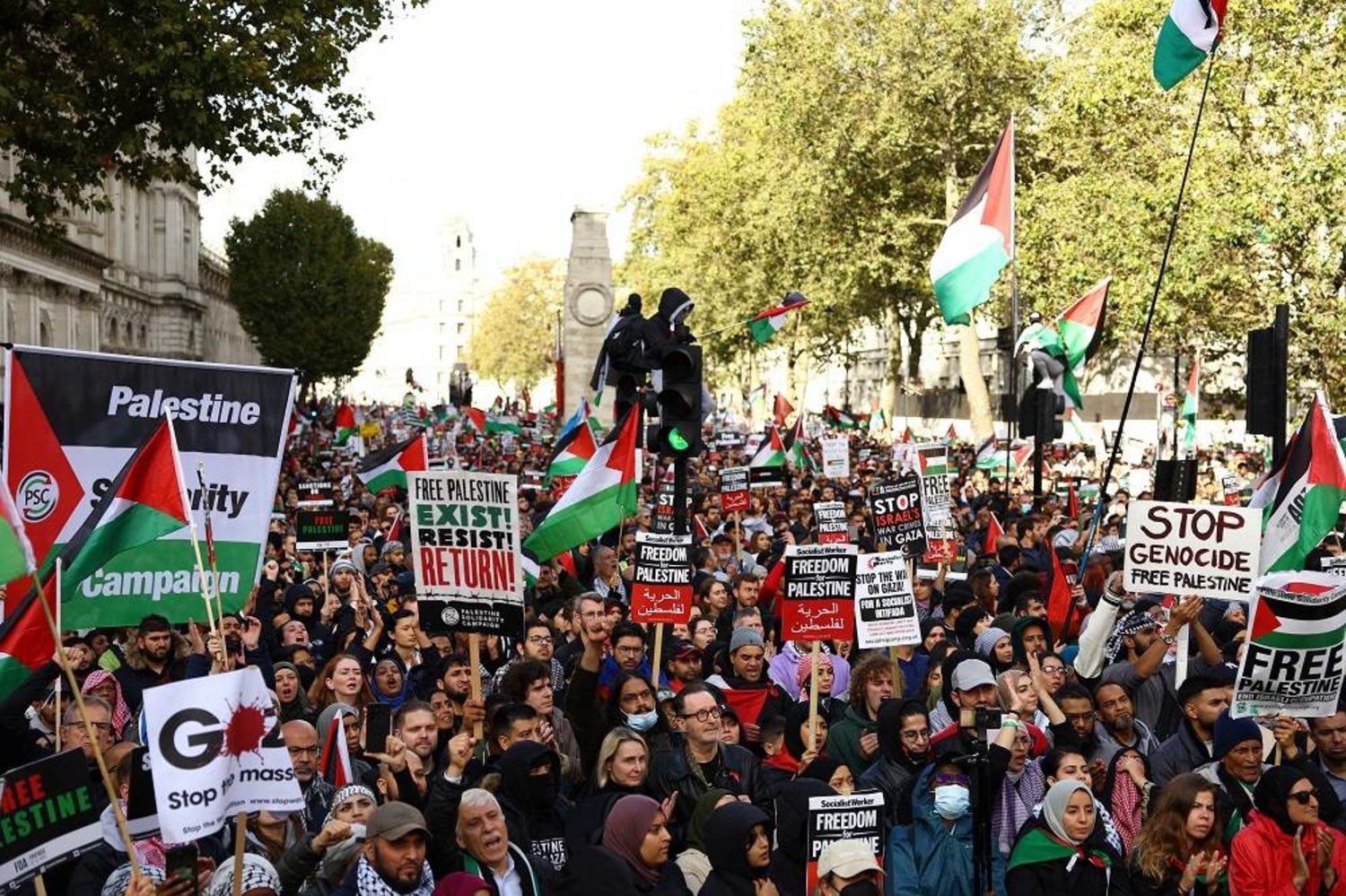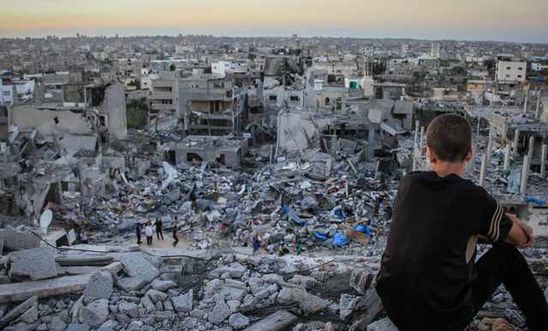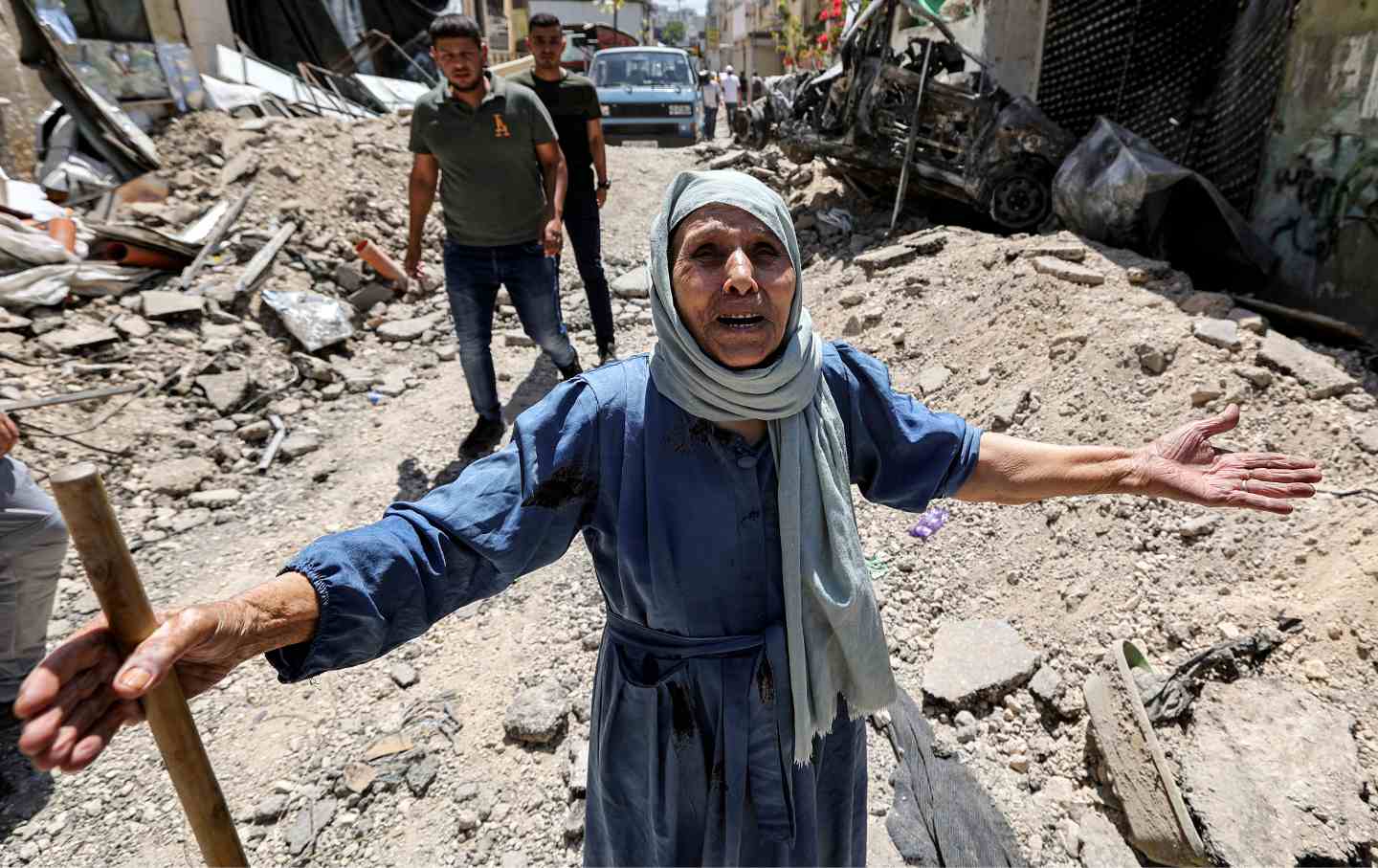It is time for those courageous voices unafraid of criticism to rise up. It is time for the bold-hearted among us to go out on a limb and demand a screeching halt to this madness.
We are at the threshold of 2007, a new year and what should have been yet one more step closer to our goal of an independent Palestinian state. Instead, we are in a situation where we are locked up, walled in, fenced out and still clawing at each others throats in our tiny Bantustan-like prisons. Our image to the world has been maimed, not only by the lopsided rationale of US President George W. Bush’s division of the world into good and evil, but also by our own lack of vision and our petty quarrels over seats of false power.
Let us take a journey back in time. Two decades ago, the Palestinians were still oppressed, under occupation and subjected to the various measures meted out by a fierce occupying power. The difference, however, is that in 1987, we were a united people, all looking to shake off the yoke of colonial rule. Hence, the outbreak of the first popular uprising, the Intifada.
In many ways, what transpired after the first year of the Intifada marked the beginning of the end to the Palestinian revolution as we knew it. The PLO, still in exile, led the uprising from afar, through what was known as the Unified National Leadership. It was nothing short of amazing how the various Palestinian factions banded together in all forms of resistance. Not only were there mass demonstrations but Palestinians united over education, the boycott of Israeli products and acts of civil disobedience. Neighborhood committees popped up throughout the West Bank and the Gaza Strip, which organized ad-hoc classes for students, whose schools were closed by the Israeli occupation, food canning to counter Israeli store-bought products and visits to the families of those killed, injured and imprisoned by the occupying authorities.
Perhaps if the leadership had chosen to continue on this path of resistance, we would not be in the mess we are in today. However, that was not to be. On November 15, 1988, late President Yasser Arafat decided it was time for a new era and declared the establishment of a Palestinian state in the West Bank, the Gaza Strip and East Jerusalem. The Madrid Conference was held, the Oslo Accords were signed, the Palestinian Authority was created and the rest is history.
While it could be worthy to continue rehashing the rest of Palestinian history up until today, it will suffice to say that the move into diplomacy and bilateral agreements with Israel as opposed to revolution can be tagged as one source of the many ills we suffer from today.
Some may argue that these agreements succeeded where all else failed in terms of expelling the Israeli army from West Bank cities and deploying Palestinian security services in their stead. The Palestinians were issued ID cards and passports and, for the first time ever, Arafat enjoyed a hero’s homecoming when he returned to Palestine to rule the PA after years of exile. For the first time in years, Palestinians were told there was a light at the end of the tunnel and their independent Palestinian state was just a “stone’s throw away.”
But the agreements internally dismembered the people like the Israeli occupation never could. Now there were Palestinians in the West Bank that could not get to the Gaza Strip while those in East Jerusalem were gradually cut off from the rest of the Palestinian territories by strict Israeli measures. The majority of the people, living in the Diaspora, were not included in the agreements and therefore had no say in how the PA was to rule and who was to rule it.
Most importantly, the creation of the PA bound the new leadership – now halfway between revolutionaries and statesmen – to international, or should we say Western standards, pitting one group against the other. Decades-old movements such as Fateh along with more recently established ones like Hamas found themselves in a struggle against one another instead of being part of a united front against the occupier.
This dichotomy only worsened after the events of September 11 and Bush’s cowboy reaction to it. His simplistic, albeit dangerous, labeling of who are the “terrorists” placed some of Palestine’s movements, such as Hamas, on the wrong side of the fence. After Arafat passed away and President Abbas took power, the US and its western allies continued to encourage this fission, beefing up support for the Fateh leader while continuing to ostracize the others.
In the meantime, greed over positions and seats of power began coming into play. Slowly but surely, the revolutionaries, who only a few years earlier, were living underground and willing to die for their country’s cause, were now scratching at each other’s eyes over seats that were granted to them only because of the enormous national concessions they made, and which could as easily be taken away from them in the short time it takes for an Israeli missile to hit its target.
It is safe to say that both Fateh and Hamas have lost their way and as a result, ordinary citizens still fiercely loyal to their leaders, have seemingly forgotten that we still have a Separation Wall to tear down, Jewish settlements to dismantle and refugees to bring home. Instead they are turning their guns on one another while the President, Prime Minister and various other leaders speak to them with forked tongues and hidden agendas.
It is time to wipe the slate clean, start anew. Our entire political program must be reevaluated, because obviously the one we adhere to has caused more damage and harm. While we cannot erase what has been done, we can learn from our mistakes and remember some of the glory of the past.
There is one simple truth that all the Palestinians – leaders, refugees, ordinary citizens and factions – must bear in mind. As long as even one Israeli soldier maintains the “right” to set foot on our soil, imprison our men and women and demolish our homes, our struggle is far from over. We do not need government titles for a government that is not free to rule its people and country with independence.
In short, we need to go back to the basics. We are one people – in the West Bank, the Gaza Strip, Jerusalem, the refugee camps and the Diaspora – who aim for one goal: to end the Israeli occupation of our land and establish a sovereign and independent Palestinian state on our national soil. Anything short of achieving this would be a huge injustice to our struggle and to the years of sacrifice this people have so selflessly offered.
Joharah Baker is a Writer for the Media and Information Programme at the Palestinian Initiative for the Promotion of Global Dialogue and Democracy (MIFTAH). She can be contacted at mip@miftah.org




